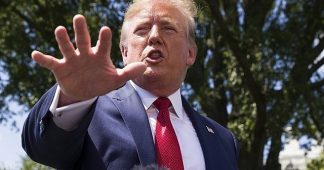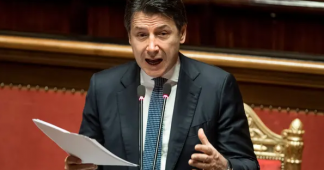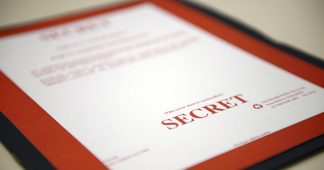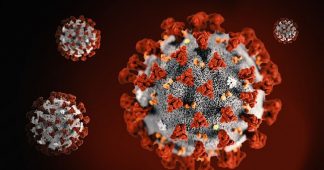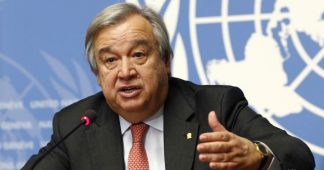The president of the EU’s top science funding agency stepped down Tuesday, issuing a damning indictment of the bloc’s response to the coronavirus crisis.
Mauro Ferrari, an Italian-American scientist who has led the European Research Council since January, said he had resigned following a dispute over the EU’s approach to the crisis — stating he has “lost faith in the system.”
In a nearly 1,000-word statement published by the Financial Times, Ferrari described a breakdown in relations between himself and the EU agency he was appointed last May to oversee, citing an “internal political thunderstorm” involving the highest levels of the European Commission.
“I have been extremely disappointed by the European response to COVID-19,” said Ferrari.
As well as a failure to fund scientists to tackle the crisis, Ferrari cited a “complete absence of coordination of health care policies among member states, the recurrent opposition to cohesive financial support initiatives, the pervasive one-sided border closures, and the marginal scale of synergistic scientific initiatives” by the EU.
A spokesperson for the European Commission confirmed the resignation, and said the Commission “regrets the resignation of Professor Ferrari at this early stage in his mandate.”
Ferrari said his proposal that the council “establish a special program directed at combating COVID-19” was “rejected unanimously by the governing body of the ERC.”
With an annual budget of just over €2 billion in 2019, the European Research Council distributes money from the EU budget to star scientists to pursue their research.
Ferrari claimed this dedication to supporting scientists’ own ideas — with no instructions on what the money should be spent on, or evaluation of the potential impact — was detrimental in allowing the agency to help the coronavirus response.
He said his proposal that the council “establish a special program directed at combating COVID-19” was “rejected unanimously by the governing body of the ERC.”
“I thought that at a time like this, the very best scientists in the world should be provided with resources and opportunities to fight the pandemic, with new drugs, new vaccines, new diagnostic tools, new behavioral dynamic approaches based on science, to replace the oft-improvised intuitions of political leaders,” he said.
The Commission has launched a €10 million emergency research fund for the coronavirus, and also directed €45 million from its industry drugs partnership, the Innovative Medicines Initiative, to develop treatments and diagnostics.
Ferrari’s criticisms were disputed by German MEP Christian Ehler, the European People’s Party coordinator for the Parliament’s industry and research committee, who has also led negotiations over the next EU research program, Horizon Europe.
Ehler said in an emailed statement that Ferrari’s proposal to deviate from the council’s usual approach “was seen more as a window-dressing public relations stand on the coronavirus crisis and it was a contradiction to the legal basis of the ERC, which can and does in many ways contribute to the fight against COVID-19.”
Ferrari also said he had been in personal contact with Commission President Ursula von der Leyen to present his ideas, at her invitation. But that, he said, “created an internal political thunderstorm.”
“In time of emergencies people, and institutions, revert to their deepest nature and reveal their true character,” he wrote, later adding: “I am afraid that I have seen enough of both the governance of science, and the political operations at the European Union.”
Ehler said Ferrari had spent significant time during the first months of the job in the United States, which “had been broadly seen as a contradiction to the job description” and accused Ferrari of “never really acquainting with the independent nature of the ERC.”
“We are sorry that things have turned out this way … However, this should not serve as argument to accuse the ERC or the EU of not doing enough,” Ehler said.
